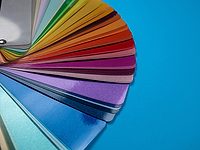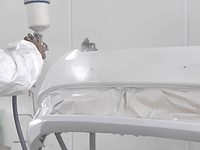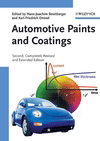Mastering the Art of Paint Production


When Havo B.V. began to experience shortcomings with the pumping technologies, the company turned to pump distributor Holland Air Pumps for an answer.

Havo’s Creall paint brand is used by schools and hobby enthusiasts in more than 53 countries all over the world.

The production of hobby paints includes many strict mixing, blending and transferring stages, and the raw materials that are used to produce the paints can have a long list of unique handling characteristics.

In the filter press that is used to clean the various production machines, Havo utilizes a Wilden Advanced Series high‑pressure AODD pump.





As it turns out, there is a definite “art” to the manufacture of arts-and-crafts paints that enable a child to finger paint a family portrait worthy of an honored place on the refrigerator door. One company that has moved to the head of the class in the production of school and hobby paints is Havo, B.V., Ermelo, The Netherlands.
Havo was founded in 1963 by Jaap Vos in Bussum, The Netherlands, a suburb of Amsterdam, as a manufacturer of modeling materials for use in schools in the region. In the ensuing 50-plus years, which included relocation in 1971 to the nearby town of Ermelo, where production operations remain today, Havo has grown to be a leading name in the production of creative materials – paints, clay, glues, drawing materials and other related accessories – for use in the educational and retail hobby market segments. In fact, Havo’s Creall® paint brand is used by schools and hobby enthusiasts in 53 countries, with further expansion into the global retail marketplace ongoing.
“We do create a lot of products, and in paints we produce four million liters (1.1 million gallons) a year,” explained Jan Zwiers, Managing Director for Havo. “It’s very important that we have products that have good quality and reliability, so the equipment we use to make our products needs to be efficient and effective.”
Zwiers’ commitment to only producing creative products of the highest quality not only reflects well on the Havo name, but also helps ensure domestic tranquility at home for him. That’s because he is married to Annemieke Zwiers-Vos, who is also a Managing Director for the company and happens to be the daughter of Havo founder Jaap Vos.
Searching For the Perfect Pump
Seeing hobby paints dispensed from a squeeze tube or bottle gives the impression that they must be easy to manufacture. In reality, though, there are many strict mixing, blending and transferring stages that must be successfully completed for every batch to guarantee that every color, whether primary, secondary or tertiary, has the tint and look that is expected.
“Our products look ordinary and easy to handle, but at times it’s hard to produce or pump the paints because they can be hard to manage,” said Zwiers. “Because we are in a niche market, the machines we use to produce our paints may need to be modified to make them right for our purposes. That’s why we have high demands for our machines, and that’s why we need good machines.”
The man charged with the task of ensuring that every drop of Creall paint that leaves the manufacturing plant meets Havo’s high quality standards is Job Doppenberg, who is the facility’s Technical Manager.
“We work from 8 a.m. to 4:30 p.m. every day, and if it’s busy, the plant keeps going until 9 p.m.,” said Doppenberg. “My job is to guarantee that all the machines are running, and if they are not running well, I look for the solution.”
Keeping equipment running properly is often easier said than done, as the raw materials that are used to produce Havo’s paints can have a long list of unique handling characteristics. This can be especially true at high-volume production rates, with Havo producing a total of 3.5 million tubes and bottles of paint annually, or nearly 10,000 a day.
“We pump the paint to one big tank, mix it with pigment, then fill the bottles that go to schools or retail outlets,” Doppenberg continued. “The paints we produce are abrasive, have high viscosity and can be a little bit sticky, with some paints more sticky than others. The viscosity of our paint is also very high, up to 30,000 kilopascals (kPa), which can have more handling problems than paint with a viscosity of 20,000 kPa. So, if we have a pump problem then the different lines can’t be filled and production stops.”
Over the years, Doppenberg and Havo had tried different pump technologies, most recently gear pumps, for the hypercritical blending, mixing and bottle-filling operations, but had begun to notice shortcomings in their operational ability that were hampering Havo’s production schedules.
“We have tried a lot of different pump technologies to pump our paint; pumps with seals, and very high-priced, expensive pumps, like gear pumps,” recalled Doppenberg. “We had a gear pump running for one year and it needed to be repaired, and it never pumped well again. We also had a piston pump on our high-pressure filter press that is used for cleaning the machines and it was breaking down. So, what do you do then? We started to look for another pump.”
Solving the Problem with Air
For assistance, Doppenberg turned to Holland Air Pumps B.V., Oirschot, The Netherlands, a distributor of air-powered pumps for use in many industrial applications. More specifically, he asked Gerrit Klaassen, Holland Air Pumps’ Commercial Director, if he could recommend any alternatives to the ill-performing gear pumps.
“We’ve been working with Holland Air Pumps for 15 to 16 years because the service is good, they have parts in stock and if there is a problem the people from Holland Air Pumps come here and explain what the solution is,” said Doppenberg. “They also supply test pumps to show what the solution is, so I talked to Gerrit and he said we could test some air pumps that they had.”
Klaassen’s specific recommendation was air-operated double-diaphragm (AODD) pumps from Wilden®, Grand Terrace, California, a product brand of PSG®, Oakbrook Terrace, Illinois, a Dover company, for which Holland Air Pumps is a distributor in The Netherlands and other European countries. More precisely, Klaassen suggested stainless-steel Wilden Original™ (Clamped) and Advanced™ (Bolted) AODD pumps, the 51 mm (2”) PS8 and PS800 models, respectively.
“Since the viscosity of our paints is very high we needed AODD pumps with stainless-steel balls so that the ball would not get stuck in the paint when it was time to reseat in the valve,” explained Doppenberg. “If the ball gets stuck in the paint, it stays up and the pump won’t pump. With the stainless-steel Wilden pumps the balls have time to drop through the paint and reseat after pumping. It’s a nice pump, a very good pump.”
In addition to having the ability to handle high-viscosity liquids, the PS8 and PS800 pumps have a redesigned liquid path that reduces internal friction for maximized flow rates and pumping efficiency, with leak-free product containment guaranteed.
Diaphragm options include Buna-N, EPDM, Geolast®, Neoprene, polyurethane, PTFE (Teflon®), Saniflex™ (Hytrel), Viton® and Wil-Flex® (Santoprene®). Additionally, the PS8 and PS800 pumps are outfitted with Wilden’s Pro-Flo® SHIFT air distribution system (ADS). The design and operation of the Pro-Flo SHIFT provides up to 60% savings in air consumption when compared to competitive models, which lowers operating costs and carbon footprint. This was another crucial consideration for Havo, which prides itself on being a “green” company, and even powers its facility with solar energy while constantly monitoring electricity consumption.
Havo employs a total of 25 Wilden pumps in its production operation that are all equipped with Wilden Equalizer® SD Series surge dampeners. This accessory minimizes unwanted pressure fluctuations during liquid-transfer applications by providing a supplementary pumping action that virtually eliminates pressure variations that can create pulse in the liquid flow, with operational capability up to 8.6 bar (125 psi). The SD Series is available in aluminum, stainless steel, cast iron and polypropylene, depending on the pump model being used, and is also compatible with all of Wilden’s standard diaphragm options.
In the filter press that is used to clean the wastewater before it moves to the treatment plant, Havo is utilizing an Advanced H800 high-pressure AODD pump. The bolted configuration of the 51-mm H800 pump ensures total product containment with stainless steel and cast iron available for the wetted path, which has been redesigned to maximize output and efficiency. Diaphragm options include PTFE and Wil-Flex.
“When a long-time partner like Havo comes to us with a problem, we do our best to identify and recommend the right solution,” said Klaassen. “When Job approached me with the challenge he was facing in pumping highly viscous and sticky paint products, I knew the Wilden pumps would be the best solution.”
Conclusion
By their nature, artists are perfectionists, and they feel that every painting is truly a work of art. That means that the companies that produce the paints they use must also strive to provide perfect products. Havo has been able to meet that standard for more than 50 years in part by partnering with equipment suppliers that recognize their unique production needs and being able to deliver the perfect solution. When underperforming pump technologies were threatening to compromise the quality of its products, along with the reliability and environmental sensibility of its production operations, Havo turned to Holland Air Pumps and Gerrit Klaassen, who were quick to advocate for Wilden AODD pumps, and they have successfully met the needs of Havo’s highly critical paint-production operations.
“I need machines that I can trust to do the job, and we need partners that I can trust, that if I call them they can tell me what to do, and I get that from Holland Air Pumps,” said Doppenberg. “The Wilden pumps are very good at helping me do my job, and they make my job easier.”
For more information on Wilden or PSG, visit www.wildenpump.com or www.psgdover.com.
Looking for a reprint of this article?
From high-res PDFs to custom plaques, order your copy today!








